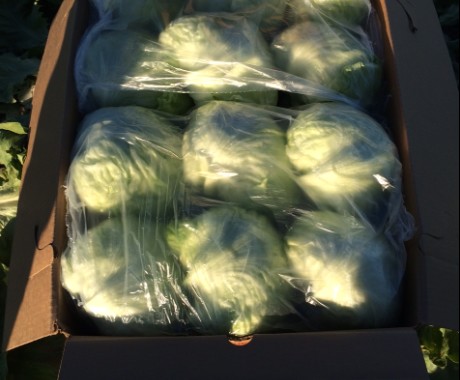Adverse Weather Conditions Have Europe Importing US Vegetables
Weather can be a very disruptive force when it comes to the supply of food and other commodities. Crops can flourish under right conditions, but adverse weather conditions can reduce harvests we tend to see prices spike whether it be coffee, corn and the like. Following a near record corn crop, consumers in the US are experiencing the benefit of food deflation that is helping Cash-strapped Consumer dollars go a bit further. In Europe, however, cold weather has led to countries importing vegetables from the US. Shipping and freight costs, airline handling fees and the strength of the dollar make for a pricey solution for this current scarcity. If this weather continues into the March planting season vegetables could become an affordable luxury.
Due to cold weather in Europe’s key vegetable supplying countries, the continent is dealing with an extreme vegetable shortage. “The last time Europe dealt with a vegetable shortage like this was in 2005,” says Lisa Sternlicht with California-based A.M.S. Export.
In spring 2013, we exported a little bit of iceberg lettuce to the UK, but now we receive requests from the UK, the Netherlands, Germany and Switzerland. Even the Spanish might be in the game pretty soon,” continued Sternlicht.
It is uncertain how long Europe’s demand for US vegetables will last. Will the consumer continue to pay high prices for vegetables or will they switch to alternatives? “Airfreight comes with a price,” shared Sternlicht. Landed costs into Europe are around 2.3 and 2.5 euros per kg. On top of it, you have to add duties and airline handling. The strength of the dollar and the post-Brexit weakness of the GBP make it pricey.The current supply shortage could become even bigger in March. Important vegetable growing regions like Murcia in Spain plant produce this time of the year for a March harvest. The extreme cold weather has made it complicated to plant and time will tell what the impact will be.
Source: US vegetables flown in to Europe during unprecedented shortage




